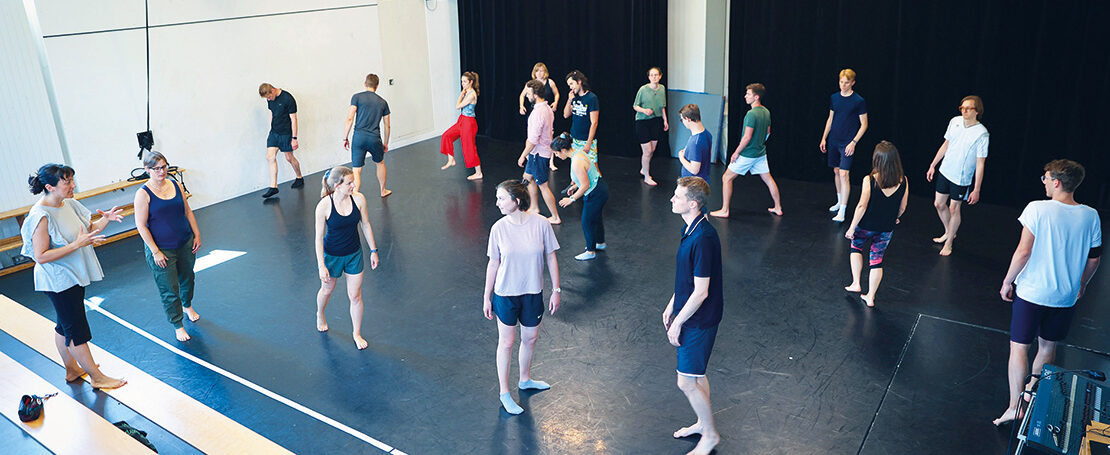
September 21, 2021

Our Deputy CEO, Yannick Heiniger talks about the joint education program and its impact through connecting Swiss students with Silicon Valley digital marketing experts.
From Silicon Valley to Ticino: Storytelling Camp with Swissnex
This interview was first published by the State Secretariat for Education, Research and Innovation (SERI) on September 14, 2021.
Swissnex helps Swiss stakeholders in the area of education, research and innovation (ERI) to establish international networking ties and encourages the global exchange of knowledge, ideas and talent. Yannick Heiniger, deputy CEO of Swissnex in San Francisco, and Iris Schuler, deputy director of the Swiss Study Foundation, talk about their joint education project and how they successfully (and virtually) connected Swiss students with digital marketing experts in California.
Swissnex is the largest Swiss network for education, research and innovation. Where does Swissnex in San Francisco focus its activities?
Yannick Heiniger: At Swissnex in San Francisco, we show up-and-coming innovators how to leverage their potential and help them to create more impactful changes in the world. We do this through targeted programmes in partnership with key Swiss public and private organisations. This is done online and in our space at Pier 17 in the San Francisco Bay Area, close to Silicon Valley.
Was it the Covid-19 pandemic that prompted you to take the programme online?
Yannick Heiniger: Yes, definitely. In 2020 we celebrated our network’s 20-year anniversary during the Covid-19 crisis, one of the most challenging times in our history. The restrictions we faced revealed the limitations of our support model, which was heavily reliant on physical events and international mobility. We took this as an opportunity to deliver programmes that reflect a new normal, one in which the Swissnex experience is offered in a blended learning format. The recent collaboration with the Swiss Study Foundation beautifully illustrates this new approach.
And what form did this collaboration take?
Iris Schuler: We worked with Swissnex in San Francisco to organise a Storytelling Camp for 16 students from various fields. They spent eight days together in Locarno, where they took part in on-site workshops as well as online events.
Yannick Heiniger: The programme focused on helping them to find their voice, framing their unique story and embodying the art of storytelling through a wide range of in-person and online workshops led by US- and Swiss-based experts from many different backgrounds. We realised that the Silicon Valley experience can be replicated in a blended manner, hosting daily live sessions in Switzerland with experts based in the Bay Area accompanied online by our staff from San Francisco.
The Storytelling Camp was originally planned as an on-site event in San Francisco. Did the alternative blended format measure up?
Iris Schuler: Absolutely. Participants were still able to take advantage being in the same space, which facilitated things like informal discussions and peer learning, while also benefiting from the expertise in San Francisco. The experienced workshop leaders and enthusiastic student groups made the online learning format truly interactive.
Yannick Heiniger: We’ll continue to offer this type of event format in future. This move towards blended and digital delivery programme models is surely one of Swissnex in San Francisco’s future-proof ways to deliver impact without relying on international travel. This allows us to reduce carbon emissions and further the Swiss ERI sector’s goals of working more sustainably and utilising digital tools to deliver educational programmes between the USA and Switzerland.
The Storytelling Camp also helped to encourage digitalisation and sustainable development, in line with SERI policy?
Yannick Heiniger: Yes, this programme enabled students to master the skill of storytelling across various digital formats – which is even more important for organisations and individuals looking to nurture their growth, to develop their brand, and to gain visibility for themselves and their work online. This format also had a positive impact on the climate since the 16 students from various countries did not have to take international flights to attend the Storytelling Camp.
What were some of the benefits of having experts from the US on board?
Iris Schuler: Americans often have a surprisingly effective presence as communicators: they connect what they’re doing to their background, their dreams, their passions – they make themselves a central figure in the story. Swiss people on the other hand tend to stick to the facts, avoiding exaggeration. The Swiss students on this project learned from professionals how to tell their stories from a different perspective, armed with the insight that a good pitch requires an emotional touchpoint.
Were there any other reasons for working with Swissnex in San Francisco?
Iris Schuler: Yes – we would like to give students from Switzerland a way in to the San Francisco innovation hub. Silicon Valley and the California state university system are excellent international locations for junior researchers.
How does Swissnex support the work of the Swiss Study Foundation?
Iris Schuler: Swissnex is an important partner for us thanks to its international network in education, research and innovation. Our mandate here at the Swiss Study Foundation shares many commonalities with that of Swissnex, which allows us to tap into synergies in these areas. Cooperation among the various Swissnex locations gives talented students from Switzerland access to potential employers and research institutions around the world.
Read the original interview here.